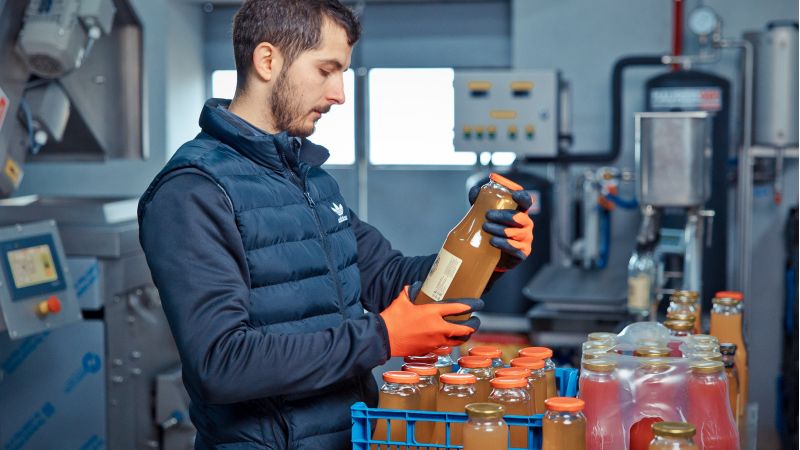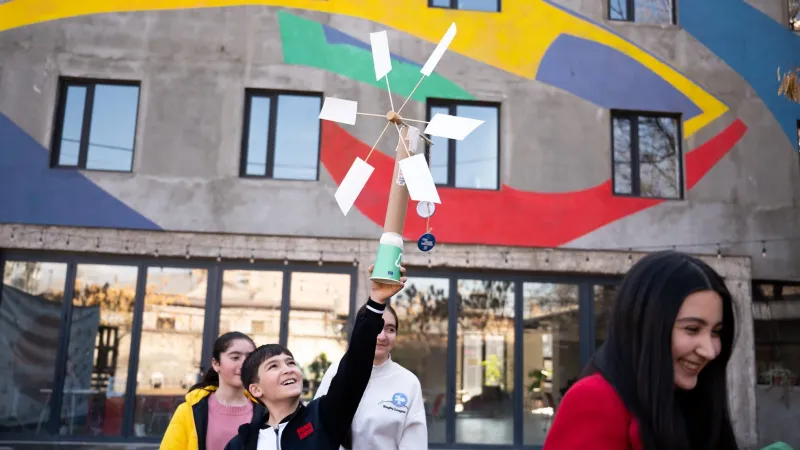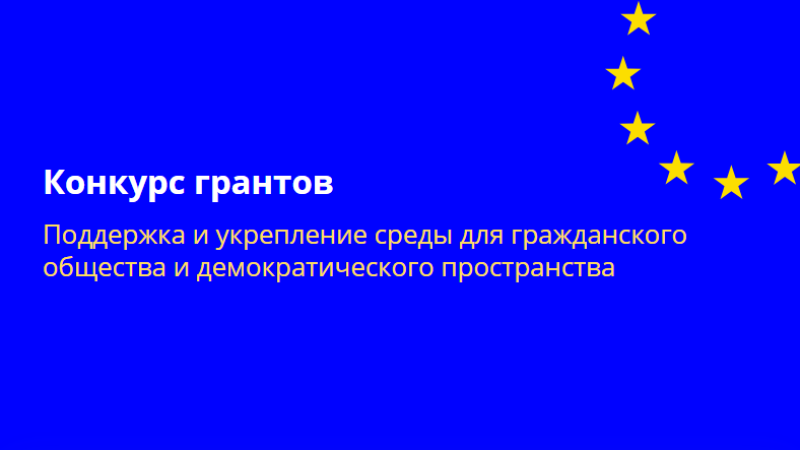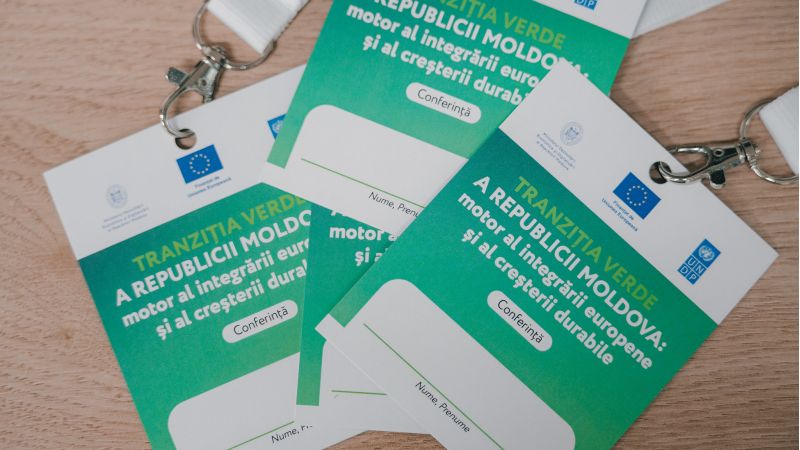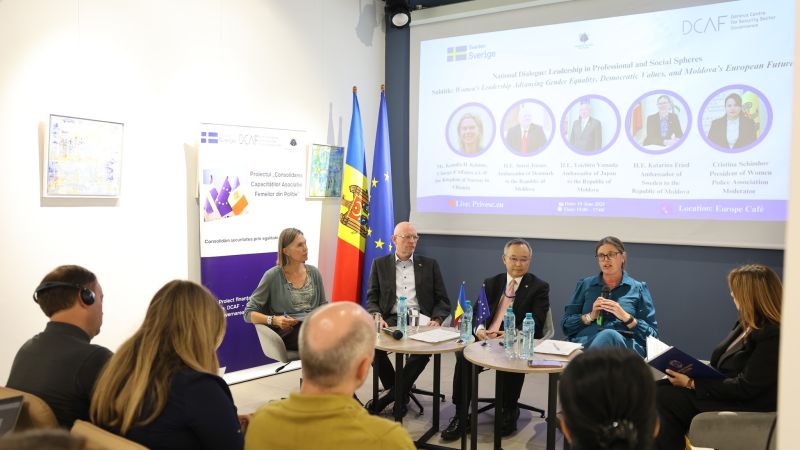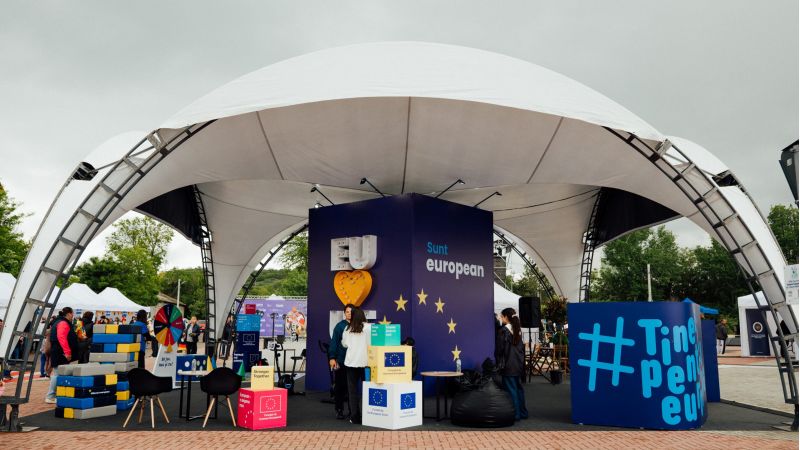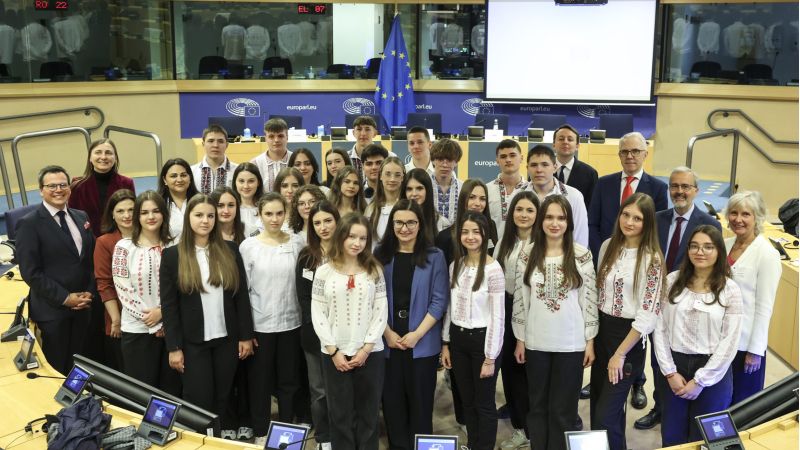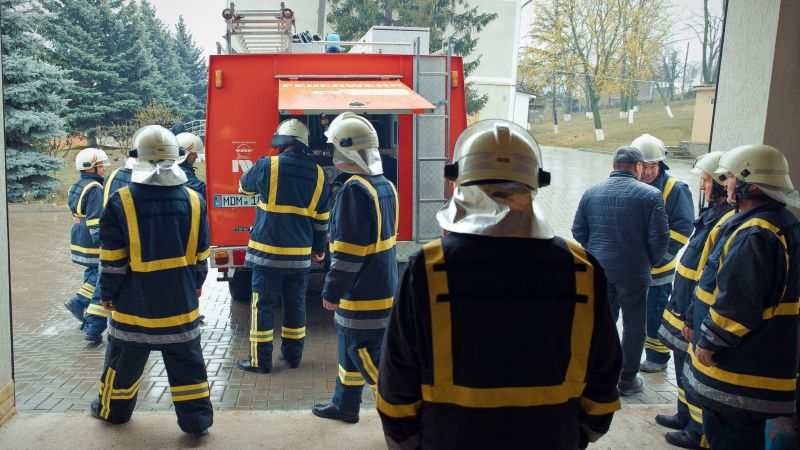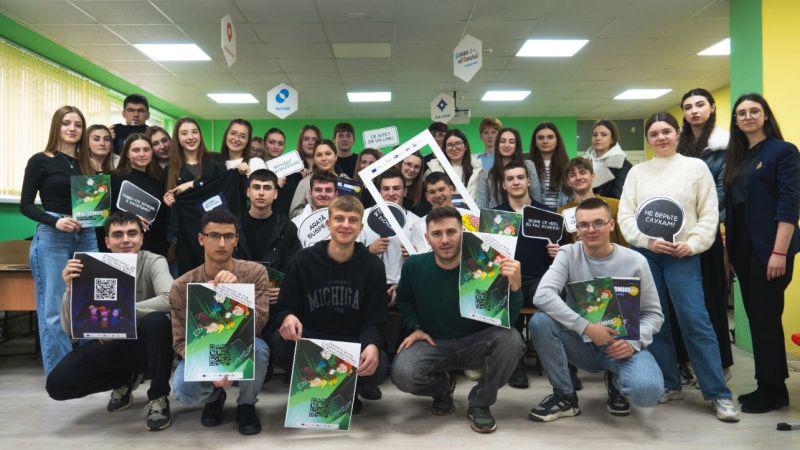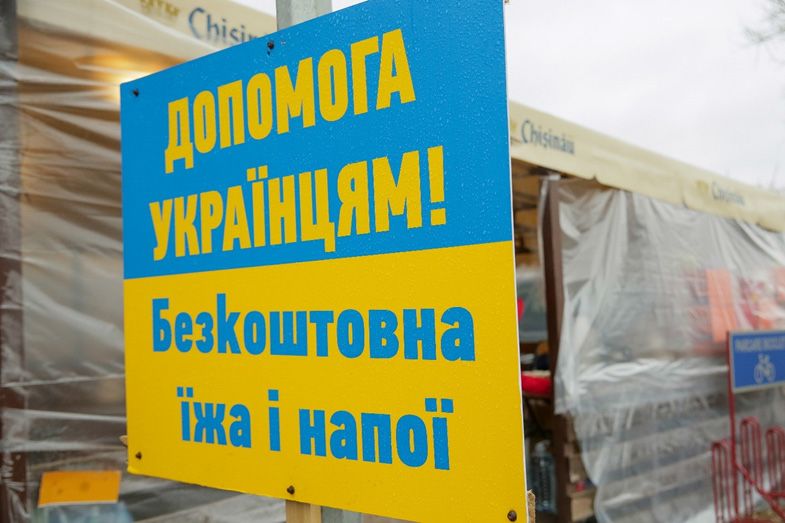
«МОЕ СЕРДЦЕ РАЗРЫВАЕТСЯ»: МОЛДАВСКИЕ ЖЕНЩИНЫ МОБИЛИЗОВАНЫ ДЛЯ ПОМОЩИ УКРАИНСКИМ БЕЖЕНЦАМ ПРИ ПОДДЕРЖКЕ ЕС
More than 400,000 Ukrainians have crossed the territory of the Republic of Moldova since Russia invaded Ukraine on 24 February. According to Moldova’s Bureau for Migration and Asylum, by 10 March, over 1,600 Ukrainians have requested asylum in the Republic of Moldova.
As part of the support provided to Ukrainian refugees, the EU-funded “EVA Project – Strengthened gender action in Cahul and Ungheni districts” were offered 100 canvas bags with hoodies, puzzles, umbrellas, food containers and thermoses.
The first days of March registered temperatures of minus two-three degrees Celsius. Hundreds of thousands of Ukrainians have abandoned their homes since 24 February. The queues are growing, despite the cold, snow and rain.
Nadejda (63 years old) and Ina (39), mother and daughter, came from Kharkiv in Eastern Ukraine, but before reaching Moldova, they spent a week with relatives in Vinnytsia (a town in central-western Ukraine). On 6 March, eight Russian missiles hit Vinnytsia and completely destroyed the town’s airport, but Nadejda and Ina had already moved on. Nadejda is accompanied by her husband, and Ina by her seven-year-old daughter, who has epilepsy.
When the Russians began bombarding Kharkiv, the family decided to move in with their relatives in Vinnytsia.
“We are from Kharkiv. We lived on the 9th floor, and we were living in fear every day under the sound of sirens and bombing. Although that was our house, it was impossible to stay there. We decided to move in with our relatives in Vinnytsia, where we lived for a week. Generally, I am happy we managed to leave because we lived in the basement most of the time,”
said Nadejda.
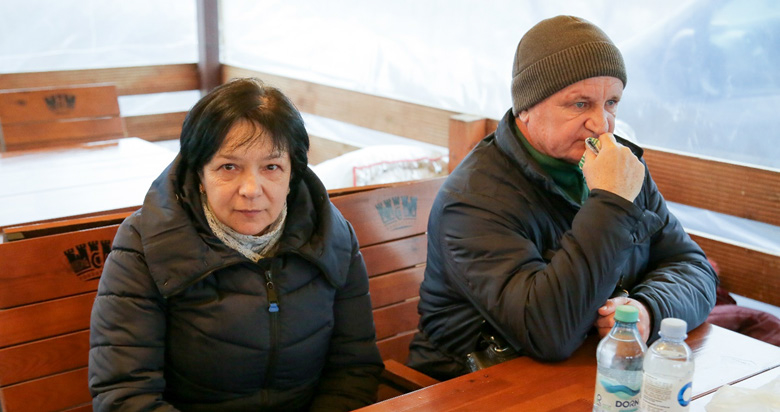
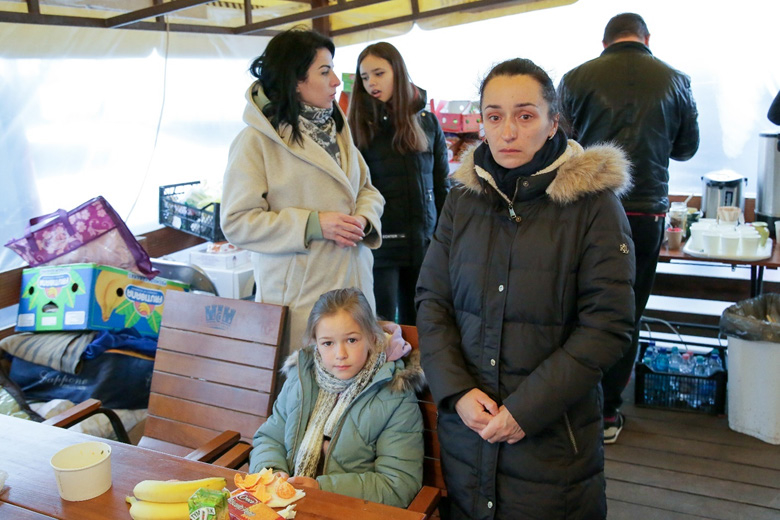
Now, the family has reached the Sculeni Border Crossing Point between the Republic of Moldova and Romania, where refugees are welcomed by a group of volunteers from the leadership organisation JCI Ungheni, which is affiliated with the global network Junior Chamber International. They have put up a tent where they provide shelter to all those who cross the border, offering them tea, hot meal, and warm clothes. Those who are in a hurry receive sandwiches and move one. Nadejda and Ina were able to rest in a warm place and were helped to find onward transportation to go to Romania.
Ludmila (aged 41) and Polina (21), a mother and daughter from Odesa, arrived in Sculeni after a long trip. Despite everything, the women retain their hope and optimism.
“I am terrified of what is happening in our town. But we stay optimistic and hope for a peaceful future,” said Polina.
Odesa is unrecognisable. This historic cultural and educational hub, known as the City of Heroes for its defence against the Nazis in 1941, has been largely abandoned by its civilian population.
“People are leaving and my heart breaks. I want peace, I want this to end so we can live in peace. My husband is a police officer and stayed behind to fight. Together with my son-in-law. There is no other way. They stay behind to defend the home,”
added Ludmila.
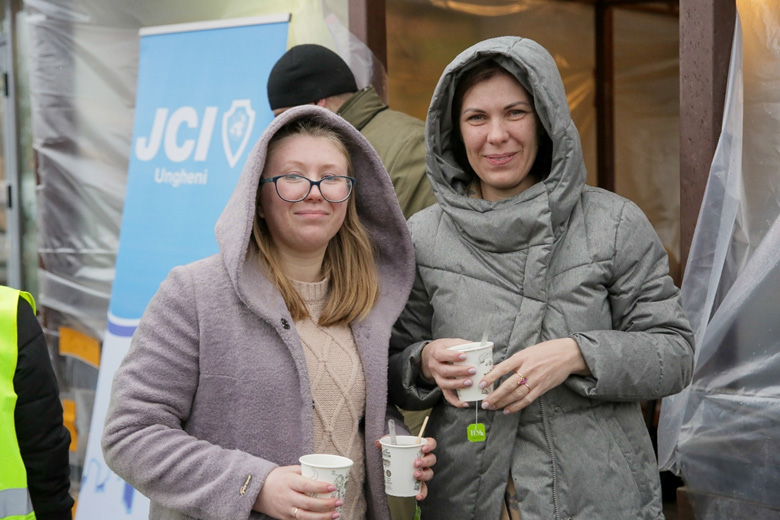
At the Sculeni Border Crossing Point, the queue of cars waiting to go to Romania is growing. People come from different regions of Ukraine, from Chernivtsi, Vinnytsia, Kyiv or Odesa to reach Romania or other European cities.
Together with the volunteers, the border police officers are the first to welcome the refugees from Ukraine. For almost two weeks, they have been working non-stop and show dedication, professionalism and care for refugees. Many of them are women: according to the IGPF (General Border Police Inspectorate), 77 women were hired in 2021, and women account for 30% of the total number of border police officers, while 464 women or 26.34% work for the Customs Service.
Veronica Gârbu has been involved from the beginning of the crisis.
“From the morning of February 24, I felt I had to get involved. I have relatives in Ukraine, who could not come to Moldova and then I decided to support them somehow, or at least to help the people who come from that side. I collect things, I sort them, I prepare parcels and provide all the support I can. I cried a lot on the first days, I listened emotionally to their stories.”
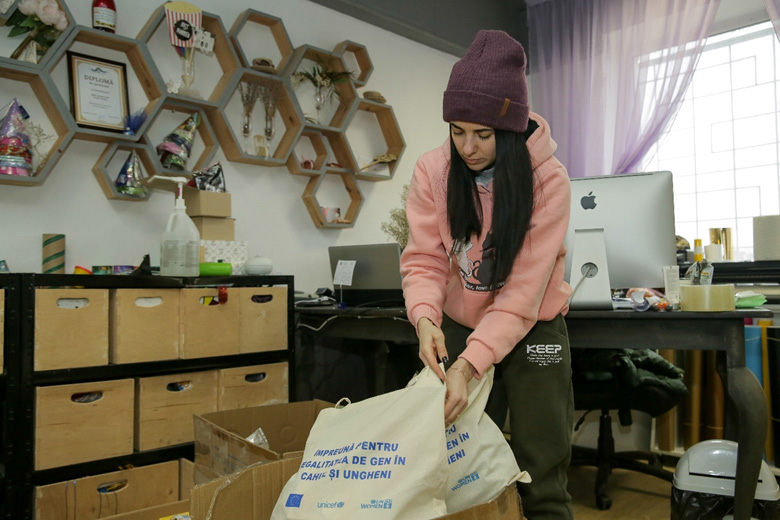
Another mother with four children reached the border crossing point. The volunteers asked her questions “Where are you going?”, “Do you need transport?”, “How can we help?”, “Do you want a hot soup? Hot tea? Hygienic products?” The tent is stocked up with water, sandwiches, fruit, winter clothes, hygienic products and blankets. Volunteers have an establishd working mechanism, some prepare food, other provide transportation.
Vera is a single mother, 50 years old and from Kyiv. After six days of tension and terror, she took her four children and decided she had to flee at all costs:
“We hid for six days in the basement. At one point, the sirens were on three-four times a day, and my children did not sleep for a week. We didn’t have anything to eat, we did not know how to survive. There was no bread in the shops, all the food was sold at once. If you didn’t spend two hours in the line, you couldn’t buy anything. As a single mother, without any support, with four children, I just couldn’t manage to find anything.”
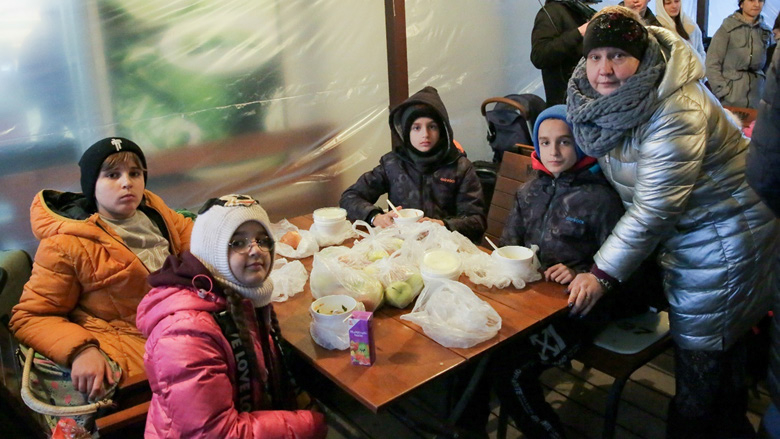
When the Russian bombs started to fall closer to their house, Vera found a way to leave the city.
“We left at seven in the morning. In 24 hours, we reached Moldova. We could not go directly to Poland, because we had to stay in line for three days at the railway station. In Moldova, I was surprised by people’s kindness; volunteers gave us food, hot drinks and provided us with winter clothes. My children hadn’t eaten in a week. I feel safer here. My eyelid stopped ticking, I don’t have panic attacks or nervous breakdowns. I am calm.”
Vera and her four children hope to reach Poland.
“I don’t know where I’ll end up. Maybe in Poland. I have a friend there. The four children ate hot soup and received warm jackets, takeaways and hot drinks. I cannot explain to my children why we are bombed and why we had to flee from our home. We lived a nightmare, a terror in the past days; my children slept next to a toilet. And what would have happened if we hadn’t managed to flee?” asked Vera.
